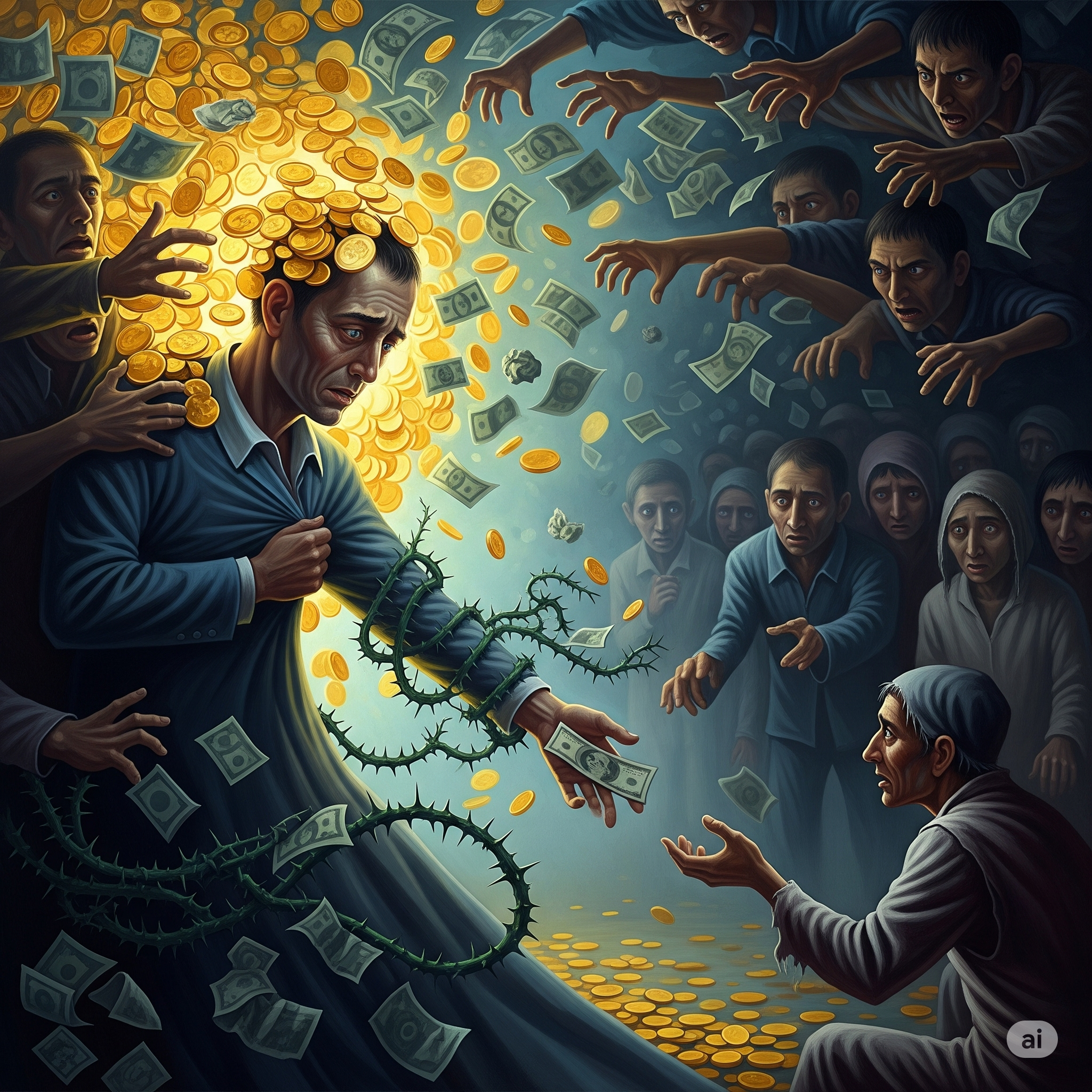Game Design
‘The Miser’
A Psychological/Moral Game
Core Concept
This is a game about the psychological burden of extreme wealth. The player character has an immense amount of money that they cannot easily spend, which becomes the source of their anxiety and internal conflict. The world is designed to pressure them to spend this money while simultaneously punishing them for doing so, whether through social scorn or internal psychological effects.
Gameplay Systems
Anxiety Meter: This is a core mechanic that tracks the character's mental state. It escalates when the player spends money, reflecting the negative psychological impact of their actions. As the anxiety meter rises, the character's fear and overall health may be affected.
Greed System: A separate metric that increases the more money the player holds onto and the more lavish purchases they make. Engaging with people in need is the only way to reduce this meter, creating a direct conflict between the player's natural tendency to hoard resources and the need for moral redemption.
Companion Affection: Your companions are a key part of the greed system. They are less affected by those in need and will try to pull your attention away from them. Their storyline is tied to your greed and your actions, and they may leave if they feel you are no longer "one of them," potentially resulting in a loss of gameplay options.
Player Actions & Consequences
Spending Money: The player can easily buy extravagant items like clothes, vehicles, and experiences. While this offers a traditional sense of fun and player agency, it directly causes an increase in their anxiety meter and greed.
Confronting the Destitute: You will witness people living in poverty, but attempting to help them is a double-edged sword. Using your money to help has a negative effect on your character, and in some cases, it may not even help the recipient, leading to a feeling of hopelessness and an increased sense of coldness.
Social Consequences: Your actions will elicit a strong response from the world. Lavish spending will attract harassment, such as having objects thrown at you, and the "blank stares" of the hopeless, which serve as a constant reminder of your moral position.
Narrative & Ending
The Final Sickness: At the end of the game, your character falls seriously ill. The only way to prolong their life is to use all of their accumulated wealth to purchase an expensive, rare drug. The amount of money you have determines how long you can live.
Companion Resolutions: The longer you manage to stay alive with the medication, the more you will be able to witness the karmic fates of your companions. Each companion will face their own resolution, whether it is regret, stubborn indignation, or something else.
Destitute Resolutions: The game offers a unique trade-off. By sacrificing your wealth to help the destitute, you directly influence their fate, allowing them to rise above their circumstances. However, this act of generosity shortens your own life, as you will be unable to afford the life-extending medication for as long. You in turn become rejected by your social class and are excluded and mocked raising your anxiety and diminishing your companion affection.
Social Rejection: As a direct consequence of your altruism, you become an outcast from your own social class. You are rejected and mocked, which in turn raises your anxiety and diminishes your companion's affection. This reinforces that choosing to do good comes at a significant cost to your personal well-being and social standing.
Death: The game concludes when your character can no longer afford the life-extending medication and eventually dies. There is no traditional "win state," but rather a final narrative resolution based on the choices you made throughout the game.
Potential Design Notes
Early-Game Investment: An interesting idea to consider is offering the player a chance to invest in the life-extending drug early on. This would require a significant sacrifice at the time, possibly costing you social standing or a relationship with a loved one, but could pay off with a longer late-game experience.
